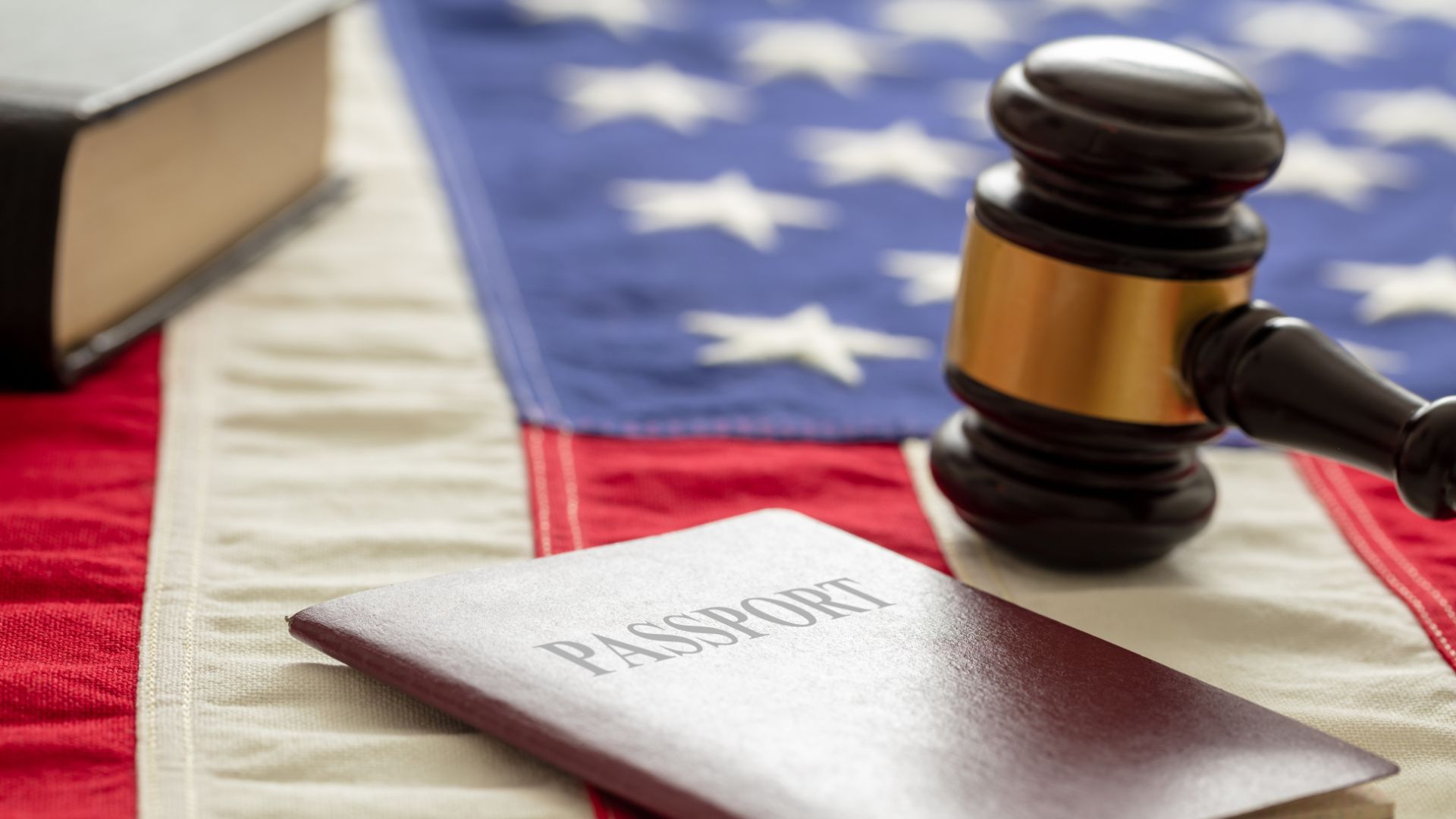At Rebecca Black Immigration, PA, we know that love knows no borders. If you’re a U.S. citizen engaged to someone from the Dominican Republic, the K-1 fiancé(e) visa is your path to starting your life together in the United States.
But immigration paperwork can be complex and confusing. Many couples feel intimidated by the forms, evidence requirements, and interviews. That’s where we come in—to make sure the process is clear, smooth, and successful, so you can focus on planning your future.
If you’re thinking about applying for a K-1 visa for your fiancé(e) in the Dominican Republic, here’s what you need to know.
What Is a K-1 Fiancé(e) Visa?
The K-1 visa is designed specifically for the fiancé(e) of a U.S. citizen. It allows your partner to travel to the U.S. so you can marry within 90 days of arrival. After the wedding, your spouse can apply to adjust status and become a lawful permanent resident (green card holder).
It’s important to note: only U.S. citizens (not permanent residents) can petition for a K-1 visa.
Who Qualifies?
To qualify for a K-1 visa, you and your fiancé(e) must:
-
Be legally free to marry (single, divorced, or widowed)
-
Intend to marry within 90 days of arrival in the U.S.
-
Have met in person at least once within the past two years (some exceptions apply)
-
Prove that your relationship is genuine
Demonstrating the bona fide nature of your relationship is critical. This is where many couples stumble without experienced guidance.
The Step-by-Step Process
1. File Form I-129F with USCIS
The process begins when the U.S. citizen files Form I-129F (Petition for Alien Fiancé(e)). This petition proves your relationship is real and you intend to marry.
We help our clients assemble all supporting evidence: photos together, travel records, communications, and affidavits—so there are no gaps that could cause delays or denials.
2. USCIS Review and Approval
USCIS reviews the petition. Processing times can vary, but careful preparation helps avoid requests for evidence (RFEs) that can slow things down.
When approved, the case moves to the National Visa Center (NVC).
3. Transfer to U.S. Embassy in Santo Domingo
The NVC assigns a case number and forwards it to the U.S. Embassy in the Dominican Republic. Your fiancé(e) will be instructed on the next steps, including completing the DS-160 visa application.
4. Medical Exam and Document Gathering
Your fiancé(e) must undergo a medical exam with an approved physician in the Dominican Republic. They’ll also gather key documents:
-
Valid passport
-
Birth certificate
-
Police clearance certificates
-
Divorce/death certificates of any prior spouses
-
Proof of your relationship
5. Embassy Interview
This is often the most stressful step for couples—but it doesn’t have to be.
At the U.S. Embassy in Santo Domingo, your fiancé(e) will attend an in-person interview with a consular officer. They’ll review the documentation and ask questions about your relationship.
We coach our clients to prepare for these questions so they can answer confidently and truthfully.
If approved, your fiancé(e) will receive the K-1 visa in their passport.
6. Travel to the U.S. and Get Married
Once in the U.S., you must marry within 90 days. After marriage, your spouse can apply for a green card through adjustment of status.
We guide clients through this stage too, ensuring no step is missed on the path to permanent residency.
Why Choose Rebecca Black Immigration, PA?
Applying for a K-1 visa is more than filling out forms. It’s about proving your relationship is real, meeting strict requirements, and avoiding mistakes that can lead to delays or denials.
At Rebecca Black Immigration, PA, we bring years of experience helping couples navigate the fiancé(e) visa process—from the first petition through the green card. We know the Dominican Republic’s specific embassy procedures, common interview questions, and documentation pitfalls.
Most importantly, we know how much this matters to you. We treat every case with compassion, care, and personal attention.
When you choose our firm, you get:
-
A clear plan from start to finish
-
Help gathering and organizing all evidence
-
Careful preparation for the embassy interview
-
Timely communication at every step
-
Peace of mind that your future together is in good hands
Frequently Asked Questions
1. How long does the entire K-1 visa process usually take?
Processing times vary, but typically 9–15 months from filing to visa issuance. Delays can occur due to backlogs, security checks, or incomplete documentation.
2. Can my fiancé(e) work in the U.S. on a K-1 visa?
They can apply for work authorization (EAD) after arriving, but it often takes months to process. Most couples wait to apply for a green card and work authorization at the same time after marriage.
3. Can we marry outside the U.S. instead?
Yes, but that would use a different visa process (CR-1/IR-1 immigrant visa). The K-1 is specifically for marrying in the U.S.
4. Does my fiancé(e) need to speak English?
There’s no formal language requirement, but the embassy interview is typically in English or Spanish (they can request Spanish in the DR). Strong communication in the relationship helps prove it’s genuine.
5. How much money do I need to sponsor my fiancé(e)?
You must show sufficient income—generally at least 100% of the Federal Poverty Guidelines for the I-134 affidavit of support. Using a joint sponsor is possible but less common for K-1.
6. Can my fiancé(e) bring children?
Yes, unmarried children under 21 can get K-2 visas linked to the same petition and travel with or after the parent.
7. Can we apply for a K-1 visa if we’ve already had a religious or symbolic ceremony?
If you’re already legally married, you cannot use the K-1. But a non-binding ceremony is fine as long as you’re not legally married yet.
8. What happens if we don’t marry within 90 days?
Your fiancé(e) must leave the U.S. They can’t extend or change status. Overstaying can trigger immigration penalties.
9. What if my petition is denied?
You may be able to refile with stronger evidence or correct errors. Sometimes, marriage abroad and filing for a CR-1/IR-1 visa is an alternative.
10. Can we speed up the process?
USCIS generally does not expedite fiancé(e) petitions except in rare emergencies. Planning ahead is key.
11. Is the Dominican Republic embassy interview hard?
It’s straightforward if your relationship is real and documents are prepared. But consular officers will look carefully for fraud.
12. Do we need a lawyer to file a K-1?
It’s not legally required, but many couples use an attorney to avoid mistakes, delays, or denials—especially with complicated histories.
13. Can we marry during the embassy process instead?
If you marry before the visa is issued, you can’t get a K-1. You’d need to switch to a marriage-based visa.
14. What if my fiancé(e) was previously in the U.S. unlawfully?
Prior unlawful presence or immigration violations can complicate eligibility. Waivers may be needed in some cases.
15. Can same-sex couples apply?
Yes. U.S. immigration law recognizes same-sex fiancé(e) visas as long as the marriage will be legal in the U.S.
16. Does my fiancé(e) need police clearance in the DR?
Yes. They must provide police certificates covering their residence in the Dominican Republic and any other countries lived in over 6 months after age 16.
17. Can my fiancé(e) visit on a tourist visa while waiting?
They can try but must show nonimmigrant intent. Many are refused visitor visas if a K-1 is pending because of clear immigrant intent.
18. What if we’ve never met in person?
Generally required within 2 years. There are limited exceptions (extreme hardship, certain cultural customs), but they’re rarely approved.
19. Can I file multiple K-1 petitions?
There are restrictions. If you’ve filed two or more before, you may need a waiver to file again. There are also limits if you filed another within the last two years.
20. What if my fiancé(e) has a medical condition?
Certain conditions (like untreated infectious diseases) can cause inadmissibility. The medical exam is mandatory and will screen for these issues.
Ready to Start Your Life Together?
If you’re ready to bring your fiancé(e) from the Dominican Republic to the U.S., don’t leave it to chance.
Contact Rebecca Black Immigration, PA today. We’ll help you take the next step toward your wedding—and your future.
Schedule a Consultation Now to get personalized guidance on your fiancé(e) visa process.




